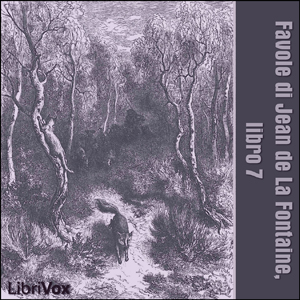
Nei 12 volumi delle “Favole” (1669 – 1693) Jean de La Fontaine rinnovò la tradizione esopica, rappresentando la commedia umana. Quest’opera dimostrò il suo amore per la vita rurale e attraverso animali simbolici ironizzò sulla vita della società dell’epoca.
n the 12 volumes/books of “Favole” (1669 – 1693) Jean de La Fontaine renewed Aesop’s tradition, representing the human comedy. This demonstrated his love for country life and by symbolic animals he ironized about his current years society’s life.
(Summary by Paolo Fedi)

Other Audiobook
Audiobook: Collection : pièces en un acte & monologues 001
Ceci est une collection de pièces en un acte et de monologues en français. This
Audiobook: Aeneid, prose translation
The Aeneid is the most famous Latin epic poem, written by Virgil in the 1st
Audiobook: Song of Three Friends
The Song of Three Friends is one of five epic poems in Neihardt’s, “Cycle of
Audiobook: Flirt
Laura and Cora Madison and their younger brother Hedrick live with their parents in a
Audiobook: Camp Fire Girls Amid the Snows
Betty and Esther are having another camping adventure in the New Hampshire hills, but this
Audiobook: Plato’s Definitions and Epigrams / Πλάτωνος Ὅροι καὶ Ἐπιγράμματα
Definitions is a dictionary of 184 terms, originated in Plato’s Academy. Until late antiquity Plato
Audiobook: Descent of Man and Selection in Relation to Sex, Part 1
A book on evolutionary theory by English naturalist Charles Darwin, first published in 1871. It
Audiobook: Entertaining Story of King Brondé, his Lily and his Rosebud
A lavish palace, a giant, a poor boy seeking his fortune, a beautiful girl in
Audiobook: Short Story Collection Vol. 086
A diverse collection of short stories selected and read in English by Librivox readers. Old
Audiobook: Ghosts
Henrik Ibsen’s Ghosts was first published in 1881 and staged in 1882, and like his
Audiobook: Anthology of Magazine Verse for 1914
William Stanley Braithwaite, a talented poet in his own right, was most notable for his
Audiobook: Vorst
Het boek bevat raadgevingen voor vorsten over hoe ze hun staat moeten besturen. De voornaamste